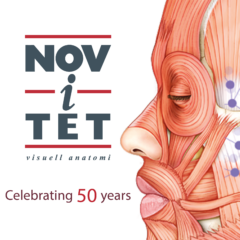Ilya Pharma får bekräftelse av FDA för behandling av en ultrasällsynt sjukdom hos barn
Ilya Pharma erhåller bekräftelse från amerikanska läkemedelsmyndigheten FDA för emilimogene sigulactibac för behandling av en ultrasällsynt sjukdom i barn som kallas SAVI.
SAVI är en genetisk inflammationssjukdom som påverkar alla delar kroppen, framförallt huden blir mycket känslig och barnen utvecklar svåra sår, de som når vuxen ålder har ofta fått amputera stora delar av händer och fötter och ibland delar av näsa och ansikte.
Bekräftelsen innebär också att Ilya Pharma, vid ansökan om marknadsgodkännande för SAVI har möjlighet att erhålla en voucher för accelererad granskning för marknadsgodkännande hos FDA, vouchern kan fritt säljas till ett annat läkemedelsbolag med behov av snabbgranskning, marknadspriset har de senaste 10 åren legat nära 100 mUSD. Detta är ett sätt FDA som myndighet använder marknaden för att stimulera forskning och produktutveckling till sällsynta sjukdomar i barn.

Evelina Vågesjö, CEO
Läs hela pressmeddelandet här:
Ilya Pharma receives Rare Pediatric Disease Designation from the U.S. FDA for emilimogene sigulactibac for the treatment of skin wounds in SAVI patients
Local-acting immunotherapies using bacterial vectors for drug delivery is gaining traction as the pipeline continues to deliver relevant clinical and preclinical data addressing multiple medical indications
Uppsala, September 11, 2024: Ilya Pharma (the Company), a clinical stage immunotherapy company today announced that it has received a Rare Pediatric Disease Designation by the U.S FDA.
About SAVI: STING-associated vasculopathy with onset in infancy (SAVI) is caused by Gain-of-function mutations in the STING1 gene, which encodes the transmembrane protein STING (Stimulator of Interferon Genes). This rare disease belongs to a newly defined class of autoinflammatory disorders referred to as type I interferonopathies that typically presents with neonatal or infantile onset of systemic inflammation and small vessel vasculopathies. SAVI disease is associated with marked childhood morbidity and increased mortality, and is characterized by episodes of recurrent fevers, cold-induced skin vasculitis causing rashes which often progress to loss of fingers and toes, as well as ear and nose tissue, and/or interstitial lung disease. The response to conventional immunosuppressive therapies is minimal in SAVI patients, resulting in marked childhood morbidity and increased mortality, which demonstrates an unmet clinical need.
About emilimogene sigulactibac: The rationale for investigating topical emilimogene sigulactibac (INN), ILP100-Topical for the treatment of skin wounds in patients with SAVI is based on the results from previous published nonclinical and clinical studies showing 1) Accelerated wound healing, 2) Increased numbers of CXCR4-expressing tissue restorative macrophages in injured tissue improve vessel function and tissue restoration, and 3) Potent antimicrobial effects on bacterial wound pathogens, especially multi drug resistant bacteria.
About Rare Pediatric Disease Designation: Rare Pediatric Disease Designation (RPDD) is granted by the FDA for serious or life-threatening diseases affecting fewer than 200,000 people in the United States and in which the serious or life-threatening manifestations primarily affect individuals less than 18 years of age. If a Biologics Licensing Application (BLA) for emilimogene sigulactibac for the treatment of SAVI is approved by the FDA, Ilya Pharma will be eligible to receive a Priority Review Voucher (PRV) that can be redeemed to receive a priority review for any subsequent marketing application, or may be sold or transferred. This program is intended to encourage the development of new drugs and biologics for the treatment of rare pediatric diseases.
“Pediatric patients living with SAVI face a significant unmet medical need with limited treatment options,” said Margareth Jorvid, Head of Regulatory Affairs, Ilya Pharma. “Obtaining Rare Pediatric Disease Designation is another acknowledgement of the serious and life-threatening manifestations of this rare disease, and supports our mission to provide emilimogene sigulactibac as a potential new treatment option”.




